Text
Georges Bataille, "The Will to the Impossible," Critical Essays 1.
If I were a 'static, given nature', I would be limited by fixed laws, some things necessarily bringing me pain and others joy. By putting me in play, nature pitches me outside of itself—outside the limits and laws that cause the humble to praise it. The fact of being gambled with makes of me a possibility that did not previously exist. I move beyond all that is given in the universe and I set nature in play.
At the heart of immensity, I am the extra, the exuberance. The universe could get along without me. My strength, my impudence derive from this superfluous character.
1 note
·
View note
Text
Georges Bataille, "Marcel Proust and the Profaned Mother," Critical Essays 1.
For as Tendances asserts,
literature has somewhat deceived humanity. We have not forgotten that it began by celebrating the gods and those demigods that were sons of men. From the beginnings of human intelligence, then, it evinced an admiration for heroism, grandeur and the tragic that has done humanity a bad turn. The raging bull within man has been only too indulged and exalted by 'great' literature. There is in reality too much heroism, too much grandeur, too much force, just as, in the opposite direction, there is too much vice, too much shabbiness. What is missing more than anything else is common sense, the average man, the bourgeois, if you like... The man who doesn't take himself seriously and yet, at the appropriate moment, knows how to do 'the done thing'... The fact is that this cheerfully sensible mental equilibrium, which is Moliere's ideal, isn't so easy to achieve. Ultimately, it takes greater willpower, greater sustained strength to maintain this reasonable happy medium than to give in to the extreme temptation of the soul, whether into violence---and the sublime is ultimately merely violence---or into vice. It is not by literary convention that tragedies end badly: it is because that extraordinary tensing of the human spirit collides too violently with things and goes against the way of the world.
4 notes
·
View notes
Text
For as Tendances asserts,
literature has somewhat deceived humanity. We have not forgotten that it began by celebrating the gods and those demigods that were sons of men. From the beginnings of human intelligence, then, it evinced an admiration for heroism, grandeur and the tragic that has done humanity a bad turn. The raging bull within man has been only too indulged and exalted by 'great' literature. There is in reality too much heroism, too much grandeur, too much force, just as, in the opposite direction, there is too much vice, too much shabbiness. What is missing more than anything else is common sense, the average man, the bourgeois, if you like... The man who doesn't take himself seriously and yet, at the appropriate moment, knows how to do 'the done thing'... The fact is that this cheerfully sensible mental equilibrium, which is Moliere's ideal, isn't so easy to achieve. Ultimately, it takes greater willpower, greater sustained strength to maintain this reasonable happy medium than to give in to the extreme temptation of the soul, whether into violence---and the sublime is ultimately merely violence---or into vice. It is not by literary convention that tragedies end badly: it is because that extraordinary tensing of the human spirit collides too violently with things and goes against the way of the world.
4 notes
·
View notes
Text
If I were a 'static, given nature', I would be limited by fixed laws, some things necessarily bringing me pain and others joy. By putting me in play, nature pitches me outside of itself—outside the limits and laws that cause the humble to praise it. The fact of being gambled with makes of me a possibility that did not previously exist. I move beyond all that is given in the universe and I set nature in play.
At the heart of immensity, I am the extra, the exuberance. The universe could get along without me. My strength, my impudence derive from this superfluous character.
1 note
·
View note
Photo
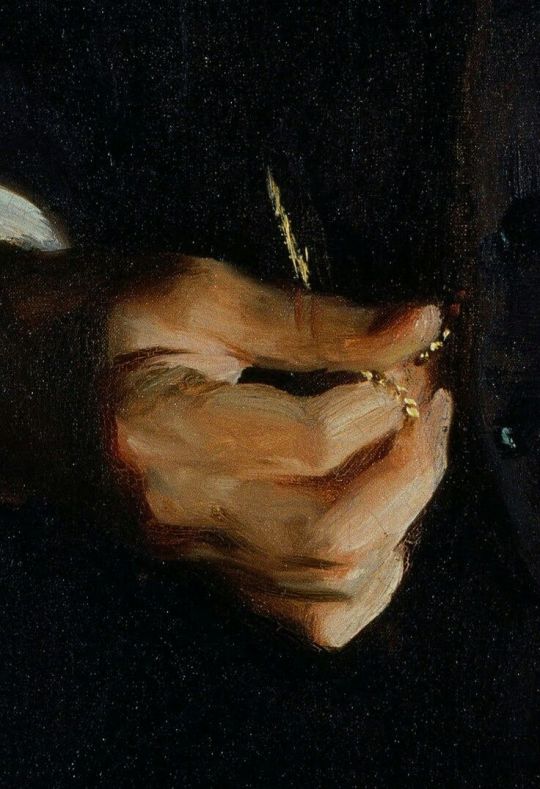

hand details of ‘Henry Cabot Lodge’ (1890) by John Singer Sargent and ‘Zwei Hande Mit Stock’ by Wilhelm Leibl
7K notes
·
View notes
Text
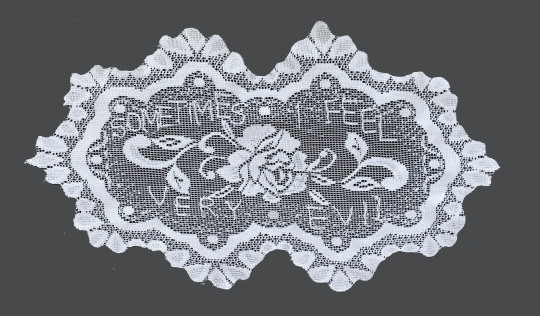
[ID: a floral lace doily on a grey background. the phrase "sometimes I feel very evil" has been added to it in white thread.]
28K notes
·
View notes
Quote
There’s nothing more impossible to imagine than the desire, the emotion, of the Other. And yet, only that is beautiful. All I dream of is this perfection, without yet being sure of attaining it—of being the “last woman,” the one who erases all the others, with her attentiveness, her skilled knowledge of his body: the “sublime affair.”
Annie Ernaux on the “Infinite Lack” in Our Search for Love
1 note
·
View note
Photo

First Love, Ivan Turgenev
3 notes
·
View notes
Quote
Love, the naturaliser of everything artificial, and at the same time the ultimate artifice, the elaborate construct, the mind’s narrative of the body’s desire. Love, the destroyer.
Jeanette Winterson
4 notes
·
View notes
Quote
But writing is more than content. More than the stories we tell. Literature is an engagement with our deepest selves, a shaping of a language to talk about who we are – away from clichés and approximations, away from generalisations and half-truths. And oddly, literature is a way, at last, of not having to talk about anything. The moment that you put the book down. The moment you stare into space. A knowing that is beyond ordinary knowing. Resolution? Or peace? Or illumination? To pass through language back into silence. We start with silence, and we return to silence, but without language to guide us we cannot return there because
Words are the part of silence that can be spoken.
Jeanette Winterson
31 notes
·
View notes
Quote
It was first love, awakening love, love as separation, love as sleepless nights and broken hearts. Love as trial by fire. The fearfulness of love. And it was love between women.
Jeanette Winterson
4 notes
·
View notes
Text
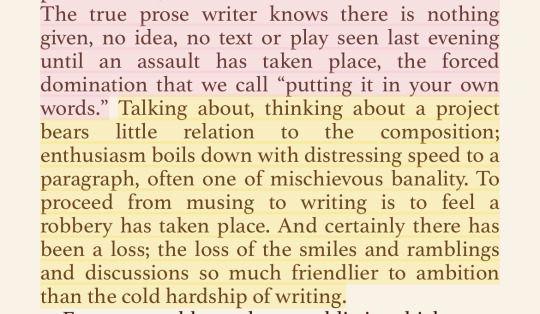
Elizabeth Hardwick, from “The Art of the Essay” The Uncollected Essays of Elizabeth Hardwick (New York Review of Books, 2022)
#elizabeth hardwick#new york review of books#prose#writing#quotes#the art of the essay#dark academia#academia aesthetic#literature
11 notes
·
View notes
Quote
When you've been through something as deeply personal as I had that night, would picking up be painful, exhausting? Above all boring, I'd say.
It's not just the aggressive unresolved problems, but siege by small beloved things. Small, clinging family things, objects that grab you, each one with its modest, tenacious prehensile charm. A photograph you took and framed, of April snow on the roof, the little imitation Bokhara rug you bought yourself for Christmas, your typewriter with a sheet of paper springing from the platen. The acetylene hunting lamp you don't need but which looks perfect in the entryway, lit up bright red; the LP of Albioni's piano sonata. Each one of them with its heartrending appeal, its insidious allure, would like to draw you in, bind you, and is astonished that you were thinking . . . that you tried to . . . that you came back, they say . . . if you're still here, however, it's also because of us. And maybe they even know it's not true, but they have to pretend to be delighted. The truth is, a man who draws back from killing himself does so (and Durkheim didn't see this) under the illusion that there is a third way, but in fact tertium non datur—there is not third possibility: it's either a leap into the siphon or a dive back into daily life, where the rhythm of everything has stayed exactly as it was and you must hasten to make up for the progress lost.
Dissipatio H.G. by Guido Morselli
#dissipatio h.g.#dissipation h.g. the vanishing#the vanishing#guido morselli#new york review of books#nyrb#suicide#literature#quote
2 notes
·
View notes
Text
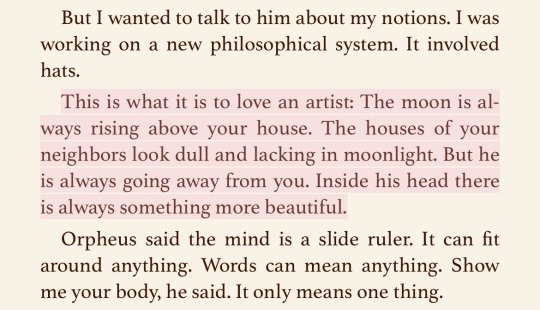
Eurydice, Sarah Ruhl
9 notes
·
View notes
Text
The Love That Dares To Speak Its Name
by James Kirkup
As they took him from the cross
I, the centurion, took him in my arms—
the tough lean body
of a man no longer young,
beardless, breathless,
but well hung.
He was still warm.
While they prepared the tomb
I kept guard over him.
His mother and the Magdalen
had gone to fetch clean linen
to shroud his nakedness.
I was alone with him.
For the last time
I kissed his mouth. My tongue
found his, bitter with death.
I licked his wound—
the blood was harsh
For the last time
I laid my lips around the tip
of that great cock, the instrument
of our salvation, our eternal joy.
The shaft, still throbbed, anointed
with death's final ejaculation
I knew he'd had it off with other men—
with Herod's guards, with Pontius Pilate,
With John the Baptist, with Paul of Tarsus
with foxy Judas, a great kisser, with
the rest of the Twelve, together and apart.
He loved all men, body, soul and spirit.—even me.
So now I took off my uniform, and, naked,
lay together with him in his desolation,
caressing every shadow of his cooling flesh,
hugging him and trying to warm him back to life.
Slowly the fire in his thighs went out,
while I grew hotter with unearthly love.
It was the only way I knew to speak our love's proud name,
to tell him of my long devotion, my desire, my dread—
something we had never talked about. My spear, wet with blood,
his dear, broken body all open wounds,
and in each wound his side, his back,
his mouth—I came and came and came
as if each coming was my last.
And then the miracle possessed us.
I felt him enter into me, and fiercely spend
his spirit's finbal seed within my hole, my soul,
pulse upon pulse, unto the ends of the earth—
he crucified me with him into kingdom come.
This is the passionate and blissful crucifixion
same-sex lovers suffer, patiently and gladly.
They inflict these loving injuries of joy and grace
one upon the other, till they dies of lust and pain
within the horny paradise of one another's limbs,
with one voice cry to heaven in a last divine release.
Then lie long together, peacefully entwined, with hope
of resurrection, as we did, on that green hill far away.
But before we rose again, they came and took him from me.
They knew not what we had done, but felt
no shame or anger. Rather they were glad for us,
and blessed us, as would he, who loved all men.
And after three long, lonely days, like years,
in which I roamed the gardens of my grief
seeking for him, my one friend who had gone from me,
he rose from sleep, at dawn, and showed himself to me before
all others. And took me to him with
the love that now forever dares to speak its name.
#poetry#james kirkup#the love that dares to speak its name#blasphemy#christianity#religion#same sex love#erotics#love
0 notes
Photo
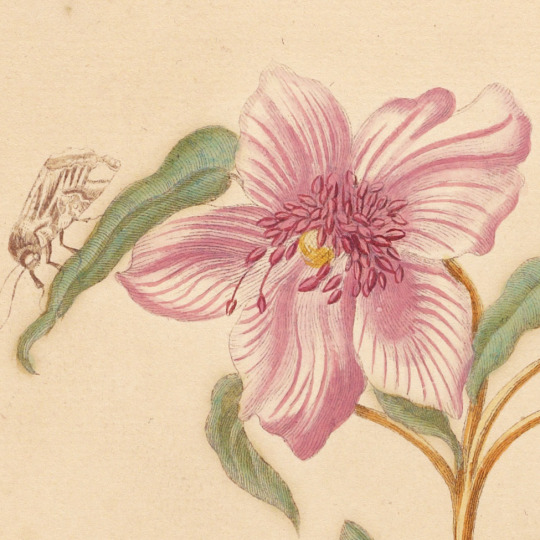
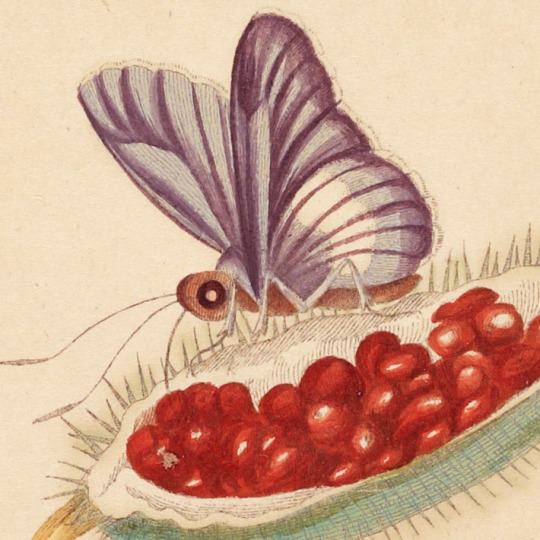
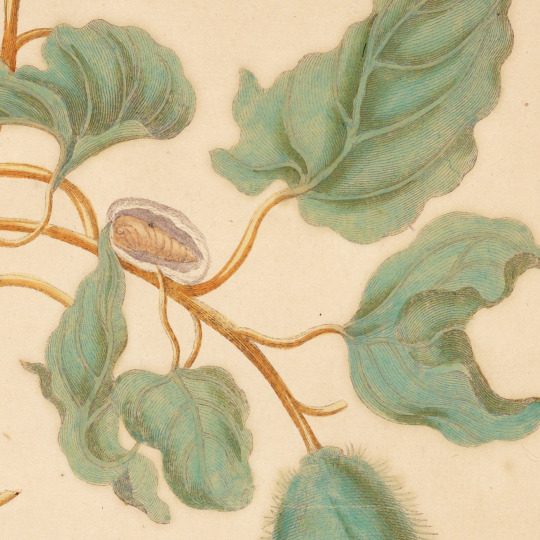
The Rocu Tree with Caterpillars, Moths, and Butterflies (detail), Maria Sibylla Merian (German, 1647 - 1717)
538 notes
·
View notes
Quote
O hurricane, be decisive. Terminate in any end, but terminate.
By Grand Central Station I Sat Down and Wept, Elizabeth Smart
5 notes
·
View notes